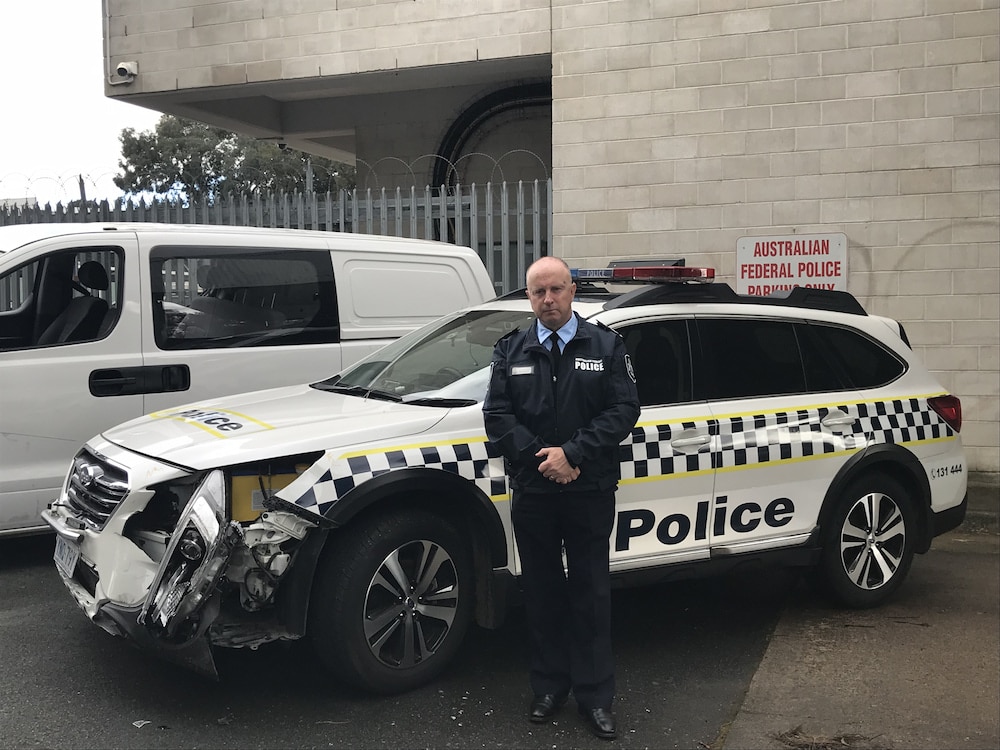The ACT has the highest rate of motor vehicle theft in the country – but police are determined to put offenders behind bars, even in the face of ‘soft’ bail and sentencing legislation.
Since July 2021, 1,700 cars were stolen in the ACT (more than 28 a week), and more than 60 houses broken into, and cars stolen as a result. Twenty-nine police vehicles have been rammed, nearly always by repeat offenders.
ACT Chief Police Officer Neil Gaughan warns offenders that retribution will be swift and certain, thanks to Operation Toric (Targeting of Recidivist Offenders in Canberra).
“We’re coming to get you; we know who you are; and we look forward to putting you before the court to protect the Canberra community,” he said.
Between 1 July 2021 and 31 July this year, ACT Policing charged 174 people with 336 stolen motor vehicle-related offences; two-thirds of the offenders (116 people) had been apprehended at least once in the two years before 1 July 2021.
Since Toric began on 1 August, it has arrested 19 offenders – most of them recidivists – and laid more than 70 charges: failing to stop for police, aggravated dangerous driving, driving at police, taking motor vehicles without consent, firearm offences, drug diving, and unregistered, unlicensed, and uninsured driving.
In his 38 years as a police officer, Mr Gaughan says he has never seen such dangerous driving on Canberra roads.
“Officers put their lives at risk daily to bring these people to account,” he said.
Once, driving on the wrong side of the road would be rare, even at 3am; now, it is happening at 8am, in peak hour traffic, putting Canberrans’ lives at risk.
“The fact that they are driving on the wrong side of the road, and engaging in really dangerous pursuit activity, is a threat to all of us,” Mr Gaughan said.
Dangerous driving has already claimed one life this year: 20-year-old Matthew McLuckie was killed in a head-on-collision with a stolen car driving in the wrong lane of Hindmarsh Drive in May.
- Family of Matthew McLuckie left ‘heartbroken’ after fatal collision on Hindmarsh Drive (24 May)
- Tom McLuckie campaigns to ensure son Matthew didn’t die in vain (13 July)
Mr Gaughan blames drugs. Last week, for instance, a 29-year-old man drove over footpaths and on the wrong side of the road at incoming traffic, under the influence of drugs. That driver also drove straight at police officers who tried to stop him.
That same week, several offenders deliberately damaged police vehicles to try to escape – or to target officers. On Thursday 18 August, three men parked outside a policeman’s house, then tried to ram his car when he pursued them. On Tuesday 16 August, a teenage girl rammed a police vehicle, drove her car at an officer, pinning him against his car, and bit another. The previous week, another man stole a Volkswagen from a gym and rammed the police vehicle chasing him.
“It’s crossed a line in the sand,” Mr Gaughan said. “I won’t tolerate [police] being targeted, whether it’s at home or on the streets.”
Once a police vehicle is off the road, he continued, that means one fewer police car to respond.
Alex Caruana, president of the Australian Federal Police Association (AFPA), explains that criminals are ramming police cars as a tactic to evade capture.
“By ramming a police car, by driving a car at a police officer, by driving erratically, they are going to delay or potentially put a gap between them and the people that are pursuing them … so therefore, they might get a chance to get away.”
Mr Gaughan believes the ACT needs trespass in motor vehicle legislation (which most other jurisdictions have). Since 2019, DNA on a steering wheel or a gearstick is not sufficient to charge someone with stealing a car; they must be seen or filmed driving the vehicle – and offenders are taking advantage of that loophole.
“They’ve been held to account for driving one stolen vehicle, not for the five or six other ones they’ve stolen that have their DNA in it,” Mr Gaughan said.
He is confident that legislation will be changed.
Criminals take high-performance motor vehicles, like European cars that go from 0 to 100 quickly, he said. They prefer soft targets like gyms and houses where they can easily get hold of keys.
To help police, and stop crime, the public must take responsibility for its own property, Mr Gaughan advised.
“Secure your keys; secure your house; prevent as much as possible these people from making you the victim of crime.”
“If you see someone break into a car, if you see any anti-social activity, report it to police straight away,” Mr Caruana said.
“Don’t delay. Don’t engage with that person. If you can, give your dashcam footage or your phone camera footage to police, because that certainly helps apprehend these criminals.”



